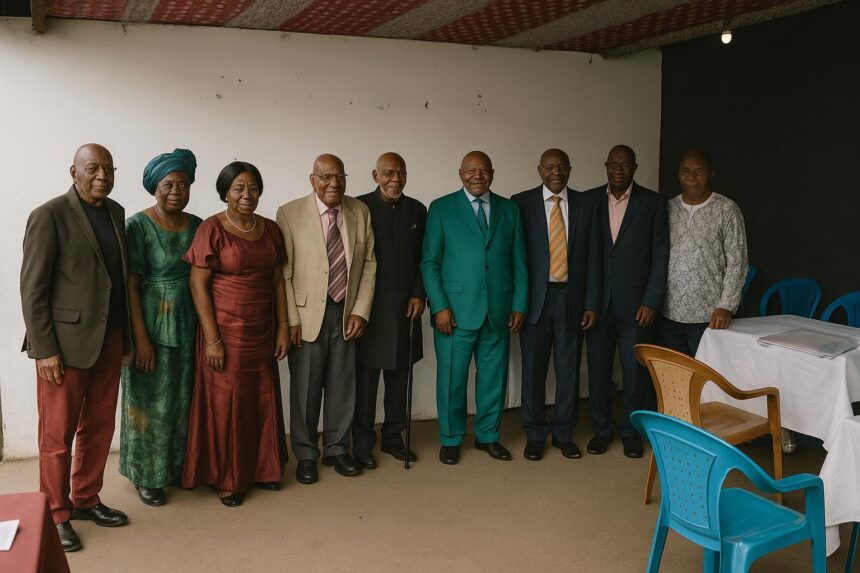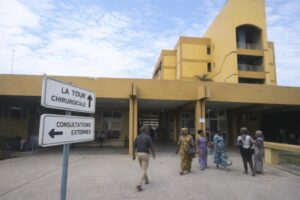Extraordinary session lights up Brazzaville
The meeting room of the Chamber of Commerce filled early on 25 October, as delegates from every département filed in under the banner of the Confederation of Contractual Retirees of Congo. The one-day extraordinary session promised clarity on money, timelines and leadership.
- Extraordinary session lights up Brazzaville
- Budget 2025-2026 faces reality check
- 360bn FCFA debt overshadows pensions
- Echoes from the early 2000s
- A new coordination team steps in
- Government signals willingness to engage
- Retirees set a tight calendar
- What this means for current workers
- How to follow your own file
CRCC president Bernard Vavoua opened with a sober reminder: many members rely solely on pensions for rent, medicine and food. “We want figures, not promises,” he said, setting a tone both firm and respectful toward the institutions expected to help.
Budget 2025-2026 faces reality check
Delegates first dissected the draft budget for November 2025 to December 2025, then the larger envelope running through 2026. Line after line was tested against today’s inflation, electricity tariffs and transport costs that shape retirees’ daily budgets.
The finance commission insisted that prudent forecasts are essential. Any gap between projected income from member dues and expected expenditure on advocacy, legal fees and social support must be closed early, they warned, to avoid last-minute appeals that rarely materialise.
360bn FCFA debt overshadows pensions
The debate kept returning to a single figure: more than 360 billion FCFA, the amount the state still owes the National Social Security Fund, according to CRCC calculations corroborated by CNSS internal notes (ACI, 28 Oct).
CNSS managers present explained that current cash-flow covers monthly pensions but not decades of arrears and benefit recalls. “If the backlog is cleared, we can breathe; otherwise, pressure will keep rising,” one official commented during a break, requesting anonymity.
Echoes from the early 2000s
Older delegates vividly remember 2000-2004, years when payments stopped for months. Some queued at banks only to return home empty-handed. The fear of reliving that period adds urgency to today’s talks.
Economist Jules Mabiala, invited as an observer, noted that Congo’s macro-stability has improved since then. “Growth in construction and hydrocarbons gives the treasury room to negotiate a phased settlement. The key is synchronising disbursements with CNSS needs,” he told reporters after the session.
A new coordination team steps in
Mid-afternoon, ballots were cast for a coordination bureau to steer the 2025-2026 roadmap. Guy Noël Mouaya won the presidency unopposed, backed by vice-president Joséphine Louka and three executive secretaries overseeing finance, communication and legal affairs.
Mouaya pledged inclusive leadership. “Our door remains open to the government, CNSS directors and private employers that contribute to the fund,” he said. His immediate task is polishing the action programme before submitting it to line ministries for dialogue.
Government signals willingness to engage
Although no minister attended, the Ministry of Labour sent a note reaffirming its commitment to “constructive exchanges aimed at durable solutions”. Sources close to the ministry say technical teams are mapping outstanding liabilities to define realistic payment tranches.
Observers read the gesture as a positive signal. “Dialogue channels exist, and the president’s social agenda includes protecting seniors,” analyst Carine Ngamba argued, stressing that public finances must also support ongoing infrastructure and youth-employment initiatives.
Retirees set a tight calendar
The adopted action plan schedules quarterly reviews with CNSS, beginning January 2025, and a general assembly in July 2025 to assess progress. A communication hotline is to be launched so retirees in remote districts can report payment issues in real time.
Legal advisers will also compile files for members entitled to back-dated allowances or survivors’ benefits. By December 2026, the aim is to cut arrears by at least half, subject to state disbursements and improved collection of employer contributions.
What this means for current workers
Active employees follow the debate closely: today’s arrears could foreshadow their own future. Labour unions representing teachers, nurses and port workers stress that a healthy CNSS reassures the entire workforce and stabilises household spending.
With median urban wages around 150 000 FCFA, many workers prioritise family support for retired parents. Faster pension payments would free up disposable income for housing loans and small business ventures, indirectly boosting local commerce.
How to follow your own file
Retirees can check payment dates by dialling the CNSS USSD code *134#, visiting local branches from Monday to Thursday, or using the upcoming CRCC WhatsApp line announced for December. Always carry your pension booklet and national ID for quicker service.
In case of discrepancies, collect recent bank statements, make photocopies and lodge a written claim at the CRCC desk in your département. The new bureau promises replies within ten working days, a first step toward the transparency many members demand.






















